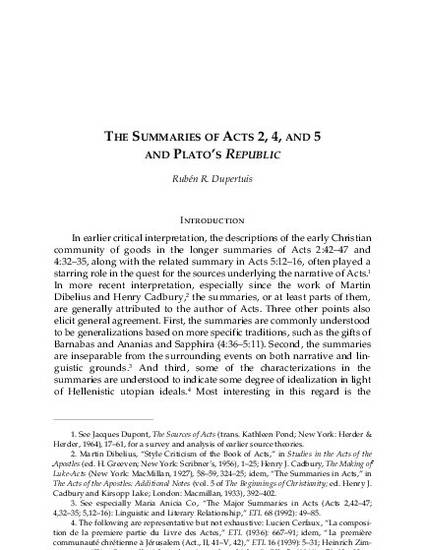
In earlier critical interpretation, the descriptions of the early Christian community of goods in the longer summaries of Acts 2:42–47 and 4:32–35, along with the related summary in Acts 5:12–16, often played a starring role in the quest for the sources underlying the narrative of Acts. In more recent interpretation, especially since the work of Martin Dibelius and Henry Cadbury, the summaries, or at least parts of them, are generally attributed to the author of Acts. Three other points also elicit general agreement. First, the summaries are commonly understood to be generalizations based on more specific traditions, such as the gifts of Barnabas and Ananias and Sapphira (4:36–5:11). Second, the summaries are inseparable from the surrounding events on both narrative and linguistic grounds. And third, some of the characterizations in the summaries are understood to indicate some degree of idealization in light of Hellenistic utopian ideals. Most interesting in this regard is the description of the early Christian community in Jerusalem as having “all things in common [ἄπαvτα κοιvὰ]” (Acts 2:44, 4:32), and being of “one heart and soul [καρδία ψυχὴ μία]” (4:32).
